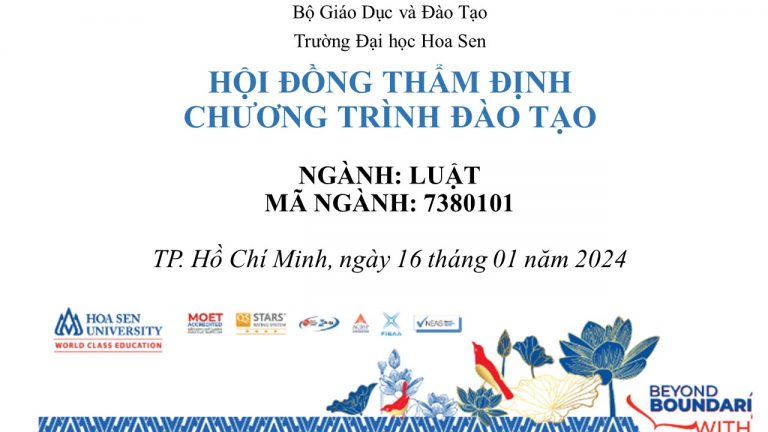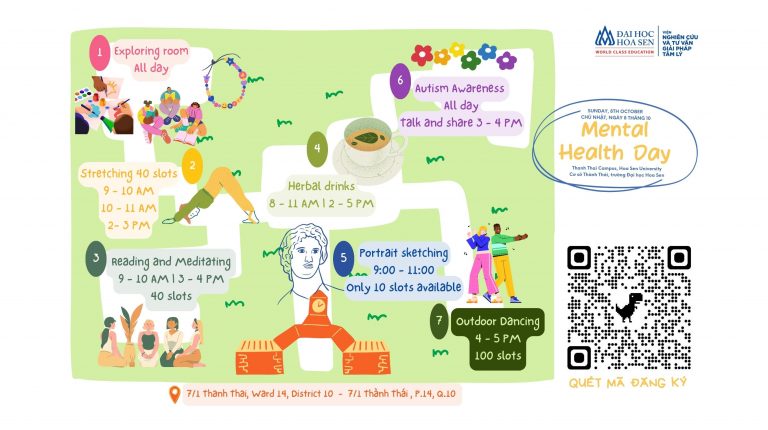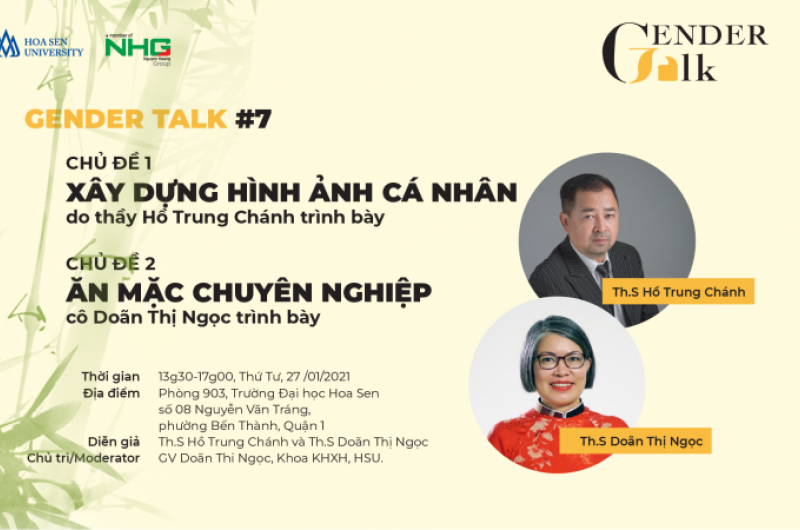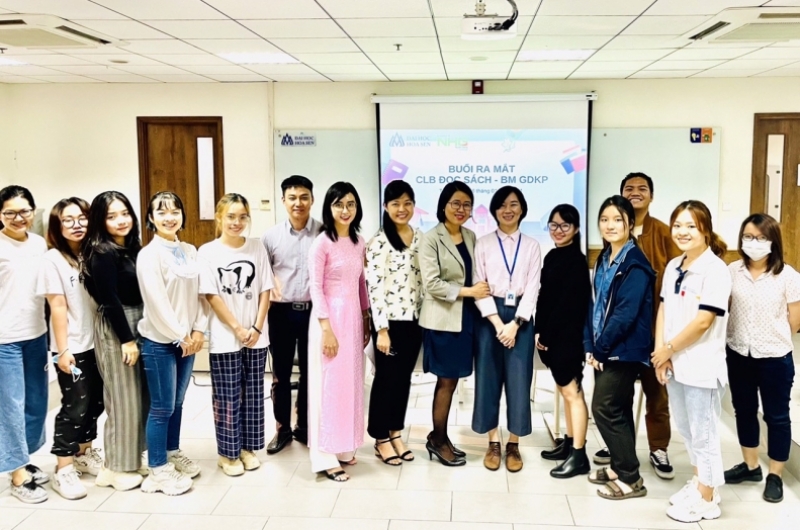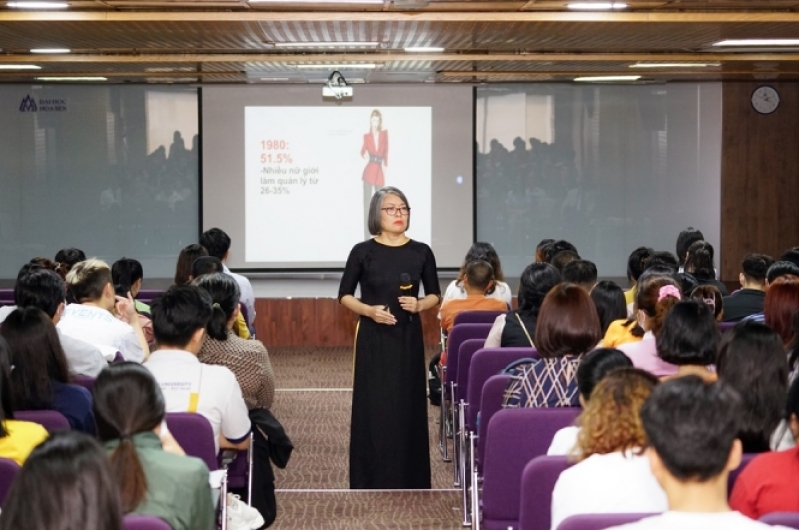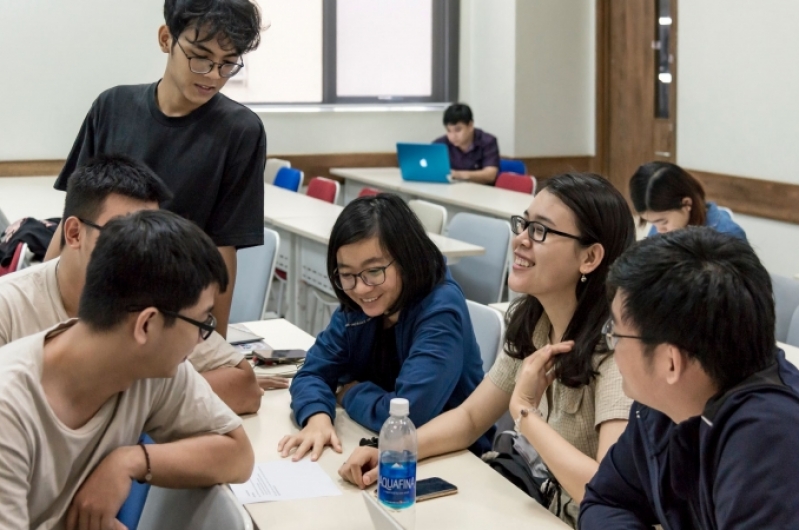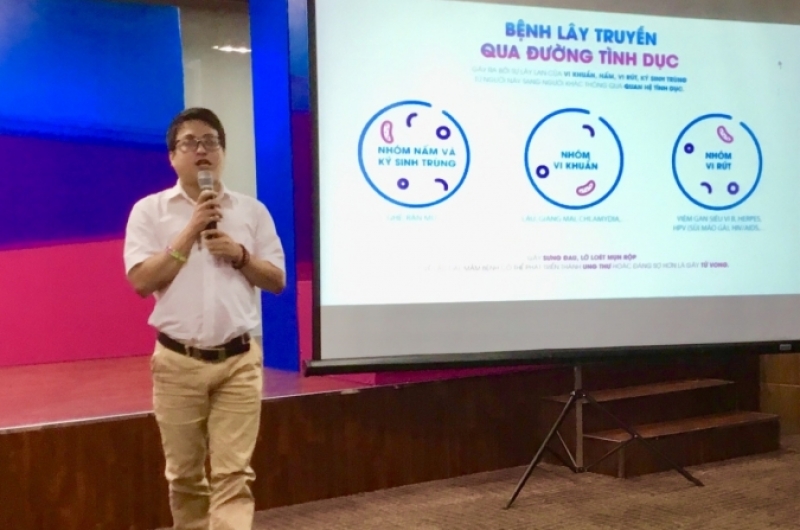“Gender Equality in Companies – Gender washing”: Seven types of questionable marketing about women’s empowerment
September 9, 2021
Author: Dr Rosie Teacher of Cardiff University
Translator: Doan Thi Ngoc – Teacher of Hoa Sen University

At a time when there is so much focus on how women are held back and treated unfairly, corporations spend millions telling us what they are doing to empower women and young people. younger sister. When doing this they seem to be more friendly with women but in reality, it is different, it is called or roughly translated as “Gender Laundry“.
Gender Laundry comes in many different forms and some forms may be more visible than others. To help identify or point out these distractions, it is useful to look at decades of research on “corporate Greenwashing” – better known for its problems. issues related to climate change.
Inspired by a 2015 article about seven identified types of green advertising, I wrote the article below about seven questionable corporate claims about empowering women and girls.
1. Selective disclosure of information
For example, when companies publicize improvements in female representation in the boardroom or the pay gap, they leave out conflicting or inconvenient information, which is called meaningful disclosure. selective.
For example, pharmaceutical corporation Novartis regularly features “Working Mothers” in its magazine’s list of the 100 best companies, through an app and highlights key information. News of the progress this group has made in implementing workplace equality for women. Novartis also proudly spoke about its support for Working Mothers, including the tweet below. However, most recently in 2010, Novatis Group lost the largest lawsuit in history regarding unequal pay, promotion, and discrimination against pregnant women.
2. Gender policies are illusory or meaningless
Some companies undertake initiatives to elevate women’s voices internally, but in practice, this has little impact. For example, “Women’s Network” aims to boost the confidence of female employees and help them build leadership skills through networking events and mentoring programs. However, critics say such networks are often ignored and do not address the root causes of discrimination or engage men in efforts to tackle sexism in companies.
A 2007 study found that corporate members of women’s networks feared it could damage their career prospects because at times male colleagues ridiculed it as a forum for “ beat men” or just a place to share cooking recipes.
3. Unclear labeling
Replacing pink ribbon advertising for breast cancer awareness with brands whose products contain carcinogens, or which substitute other risky ingredients, is one example of this gender washing. Furthermore, there are examples involving makeup products, alcoholic beverages, and even pesticides.
Pink ribbons can also be a form of gender washing that represents objectivity towards women. For example, the American bar chain Hooters has built its entire brand around waitresses with voluptuous breasts and skimpy outfits. In the company’s logo, the two Os are replaced by the eyes of an owl, symbolizing breasts that are stared at with wide eyes. However, once a year for breast cancer awareness month, the old eyes are replaced with pink ribbons, when Hooters invites customers to “support” breast cancer awareness. So wide-eyed staring at women’s breasts is changed to “caring” about breast cancer.
4. Useful partnerships
Another way in which a company’s image can be deflected by Gender Laundry is by associating with a feminist organization, women’s organization, or girls’ organization through sponsorship or giving some support. support. And then this company can place its logo on that organization’s marketing materials and potentially dilute that organization’s gender equality work.
For example, Dove has partnered with the World Association for Girl Scouting and Girl Scouts to develop teaching materials to help girls question popular beauty standards that hurt them. hurt their self-esteem. This shows that they have aimed to inculcate those beauty standards to sell products, regardless of this being the beauty sector, in which Dove plays its part.
5. Rules for voluntary activities
When rights abuses emerge in global supply chains – most often affecting women workers in the global south – there are often demands for stricter regulations on their operations. enterprise. One way for companies to respond and potentially deflect such requirements is to create voluntary operating rules. Voluntariness is demonstrated by corporations as a company’s commitment to empowering employees – especially women.
Voluntary regulations by corporations or companies rarely lead to meaningful improvements in the empowerment of women and girls. For example, when the Rana Plaza garment factory in Bangladesh collapsed in 2013, more than 1,000 workers died, about 80% of whom were women. Subsequently, the Bangladesh Voluntary Coalition for Worker Safety was formed and promoted by Western retailers such as Walmart to improve the safety and empowerment of female factory workers. Crucially, however, there was no legally binding commitment to prevent another disaster, and the coalition was subsequently criticized by activists and researchers for not improving conditions quickly enough.
6. Change the story
Corporations can position themselves as global leaders on issues that they previously aspired to. For example, in the late 1990s and early 2000s, Nike was dogged by claims of child labor and sexual and physical abuse among workers at supplier factories, among them Women account for 90%.
Nike’s response included establishing a dedicated corporate division and establishing the Nike Foundation. One of the foundation’s flagship campaigns is the Girl Effect, launched in 2008 to persuade global elites to invest in girls’ education in the global south.
The campaign quickly went viral and soon partnered with the UK’s Department for International Development on girls’ empowerment programs in the global south. Nike has gone from a brand tarnished by accusations of child abuse and exploitation to a trusted partner in international efforts to advance girls’ rights.
7. Reaffirm the brand
The famous logo of Chiquita Brands Corporation can give shoppers in the global north the impression of buying bananas from a cheerful Latina saleswoman.
However, feminist scholars have documented the long history of Chiquita – formerly known as the United Fruit Company – exploiting women on banana plantations in Latin America and the Caribbean. This includes cases of sexual harassment, discrimination, exposure to toxic chemicals, and violations of child and maternity care rights.
Does all of this matter? If companies want to use the excuse of gender equality, is that bad? Some women and girls have indeed sought to benefit from gender washing campaigns, but we cannot help but consider the broader picture of its impact.
If a company’s labor practices, supply chain, or products are harmful to women and girls and it sells more products because of its disguised or impersonated gender equality stance-gender washing This has increased the harm. That’s why it’s so important to identify and call out forms of gender washing whenever we see them.

